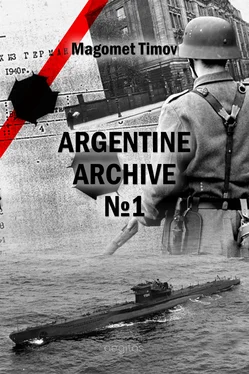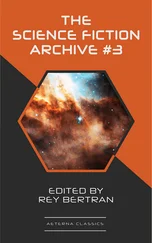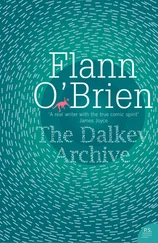Kotov slipped the stopwatch into the pocket of his wide riding breeches and stepped out of the shadows:
“Skiff, Tom – to me!”
Two cadets jumped up with the speed possible after such a strenuous march and ran up to him, stretched out ‘into the front’.
“You’re still three kilometers away from that hillock. Hill 236 on the map. Off you go! Clock’s ticking!”
The guys looked at each other, and gritting their teeth, set off in the direction indicated. Kasatkin, who arrived in time to hear this, looked mockingly at the major.
“Why are you torturing those kids, Cat?”
The major chuckled:
“Better me than the sadists from the enemy counterintelligence… Or do you disagree, Captain?”
“Well, I’m all for it,” Kasatkin said, though he was confused. “Only the standards apply to everyone, and you’re working this pair to death…”
“They are not ‘everyone’,” the major said nonchalantly and, having saluted the captain, set off after his soldiers. The captain shrugged.
“As you say, Comrade Major, as you say… Tokmo rarely escaped from death on foot…”
“And neither from me,” said Kotov, showing off his amazing hearing to his confused subordinate without turning around. “Get your men on their feet and get to the hill.”
It was like that about a month and a half ago. Today, such crosses are childish compared to what they had to experience and learn in such a short time. These two, undergoing special training through an accelerated course, showed amazing results in all disciplines. The major was glad that he had chosen the correct candidates. It was he who suggested recruiting not yesterday's schoolchildren or demobilized conscripts, but graduates from specialized universities who had received excellent knowledge of the disciplines necessary for their future assignments. And athletes at that, of course.
And this doctrine of choice justified itself. Skiff and Tom have already passed subjects that were taught to ordinary cadets at the end of the second and third years of the special school. Their academic higher education and the general level of erudition stood these recent Moscow students in good stead.
They had no need for actual combat experience in the upcoming assignment, despite the selection committee’s recent emphasis on it. They will become representatives of intelligence on a qualitatively new level – intellectual, scientific, technological. The current situation posed these challenges, and they had to be met.
At a quarter after eight, both cadets showed up at the door of the ‘red corner’. Ivan glanced at Andrey and pushed the shutter aside and looked inside.
“May we?”
The major sat in the far corner of a vast room filled with straight rows of folding chairs, like in movie theaters. At a small stage, Kotov had set a table and settled down beside it. Two more chairs were empty, waiting for the cadets.
“Come in, cadets. Come in, have a seat. As I understand it, this might be a long conversation. But as my grandmother used to say, there is no truth in one’s legs.”
Yesterday's students did not hesitate, taking their places opposite the major. He looked them over with a calm gaze.
“Should I start, or will you explain the essence of the problem yourselves?”
Ivan breathed in and started:
“Comrade Major…”
“Sergey Vladimirovich,” Kotov interrupted him quietly.
“What?”
“No ranks here, Vanya, so call me by my first name and patronymic, okay?”
“Yes, comrade… Sergey Vladimirovich. In general, we’d like to understand what moral and professional qualities separated us from millions of our compatriots? And why are we not allowed to spend most of our free time with the other cadets, instead having to sit in our rooms? Well, something along that vein…”
Ivan looked back at Andrey for support, but he just nodded. Kotov looked at their frowning faces and burst out laughing. The youths looked at each other again, and now Andrey asked:
“Was that not the right way to put it?”
Kotov shook his head, then raised his palms, soothing them.
“No, not at all… Everything’s in order. It's just no one’s ever asked that within these walls since the founding of this charitable institution. As you may have noticed, in general here, it is not customary to ask questions. But I understand you: this is the Suvorov style. ‘Every soldier must know his own maneuver…’ That's right, only in this case, a soldier must also think like a commander. I'm not talking about the army now, but about intelligence specifically. In our case, excessive knowledge is a burden, and therefore, our cadets learn about their assignments at the very last moment. But in your case, everything is different, and you felt it. Why?”
After a pause and noting the increased attention of the cadets, the major continued:
“Because you really are special. There are several reasons for this. To start with, you were the first to come here not from the army, but after graduating with university diplomas. This provided a certain intellectual starting level and set a new bar. Second, what you have to do is fundamentally different from most of the tasks that graduates of this institution usually face…”
“The country of the language we’re studying,” Ivan muttered. He remembered a conversation in the dean's office of his alma mater, that had suddenly seemed so long ago, as if from another life. Kotov heard this and nodded.
“You’ve almost guessed that right, although here only every first person becomes an ‘illegal’. But that’s not the point right now. Let me try to explain it in a simpler way…”
“Just try your best, comrade… ‘Cat’… We hope we are clever enough to understand,” Andrey said, inserting his two cents with maximum irony and winking at his friend. The major, however, did not hold with the cadet's humorous tone.
“The task the Party and the Soviet Government set before the three of us is extraordinary. Ordinary operators can’t pull it off, even those with extensive experience working abroad. I’ll clarify the situation as best I’m able to.”
He got up, tugged at his shirt, straightening its folds under the belt of the harness on his back, and went to the window. He tore open the heavy, dark-brown velvet curtains. The August evening was slowly dying behind the large glass panes.
“I want to make it clear, right away,” he said over his shoulder, “that tonight's conversation does not fit into the framework of your training course and is purely private…”
“Why…” Ivan began, but Kotov cut him off sharply:
“Don’t interrupt, Skiff. All in good time. I won’t dwell on the details. I’ll just brief you on the state of world politics and the situation surrounding the upcoming tasks. You’ve already realized, Ivan, that you’re going to act in Argentina. Tomorrow you’ll begin studying the features of this Latin American country. Its geography, climate, economy and political system. In the immediate post-war years, our intelligence mostly engaged in counter-espionage. We lost some of its positions on the world stage. In Latin America, especially, we weren’t always strong.
“After the Second World War, the Americans firmly settled there. This is unsurprising – Uncle Sam has always sought to warm his thieving paws on the wealth of others, and Latin America is oh-so-generous with its resources! However, we aren’t interested in these countries’ minerals. We’re looking for certain people, war criminals, hiding something from the world that is very important and no less dangerous for us and our country if it falls into enemy hands. When we find these people, we will have to determine on the spot the importance of what they have. Based on our findings, the Center will decide what to do with them.”
Читать дальше












